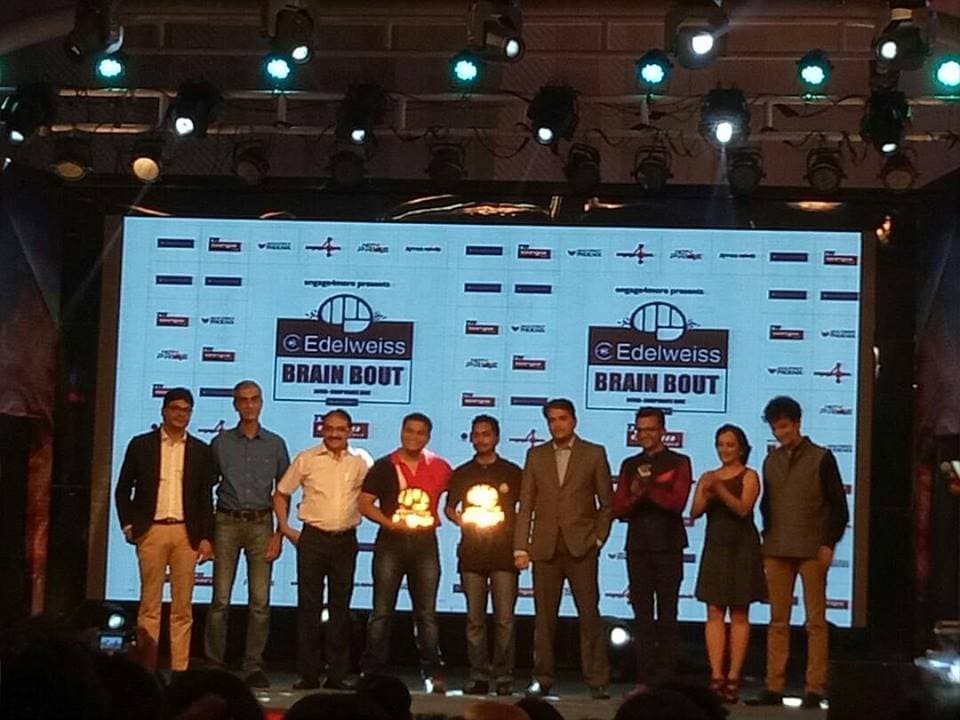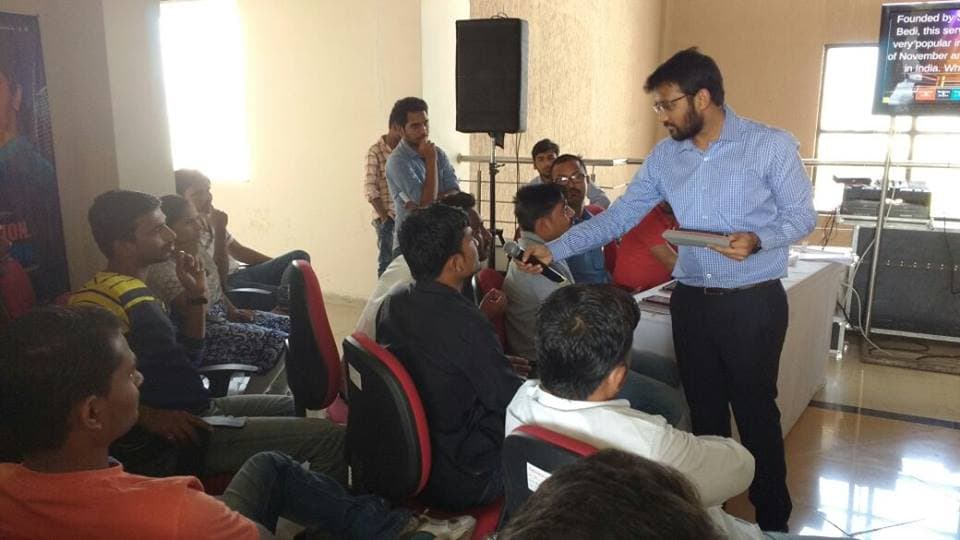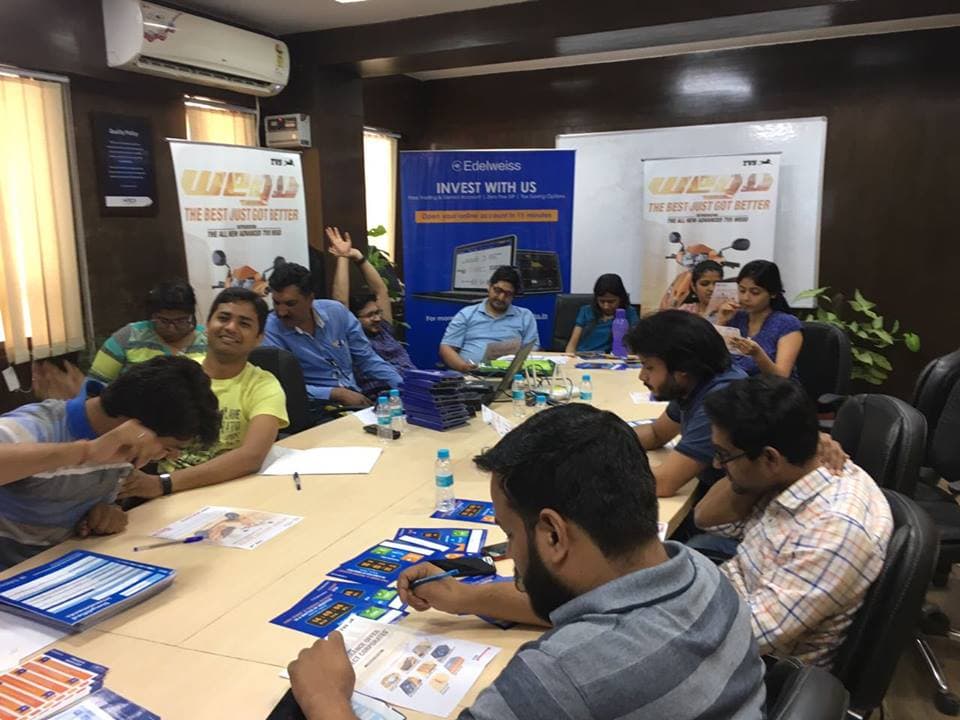QuizMasterPro
- Case Study Details
Description
Revolutionizing India's quizzing culture by replacing physical buzzers with an integrated digital platform.
Tech Stack
React NativeNode.jsSocket.ioMongoDBReal-time Sync
The Problem: Quiz Shows Trapped in the Analog Era
In 2018, I attended a corporate quiz event at IIM Lucknow. Despite being in one of India's premier business schools, the quiz setup looked like it belonged in the 1990s: heavy physical buzzers connected by a maze of cables, manual scorekeeping on whiteboards, and a frazzled quizmaster juggling multiple presentation slides.
The pain points were obvious:
- Setup complexity: 2+ hours to arrange cables, test connections, and troubleshoot
- Hardware failures: Buzzers malfunctioned mid-quiz, causing disputes and delays
- Manual scoring: Error-prone and time-consuming
- Limited interaction: Audience was passive; only buzzer-holders could participate
- Content management: Questions lived in PowerPoint files with no search or organization
But the real tragedy was witnessing brilliant quizmasters—people with encyclopedic knowledge and natural showmanship—getting bogged down by technical logistics instead of focusing on what they did best: creating magical moments of discovery and competition.
My Vision: Technology That Liberates Creativity
I didn't want to just digitize the existing system; I wanted to reimagine what quiz shows could be. What if technology could:
- Make setup effortless so focus could be on content and engagement?
- Enable new question formats impossible with physical buzzers?
- Bring the audience into the game, not just as spectators?
- Give quizmasters superhuman powers to manage complex competitions?
The Technical Challenge: Millisecond Precision at Scale
The core technical challenge was deceptively simple: when multiple people tap their tablets to "buzz in," the system must accurately determine who was first—even with network latency, device performance differences, and varying touch sensitivity.

Real-time Synchronization Architecture
I built the system using WebSocket connections with a custom protocol that could handle:
- Automatic reconnection for unstable venue WiFi
- Conflict resolution for simultaneous actions
- State synchronization across all devices when new players joined mid-game
The architecture used a hub-and-spoke model where the quizmaster tablet controlled game flow and could see all player states, while player tablets provided responsive buzz interfaces, and a projector displayed live scores and multimedia content.

User Experience: Simplicity Through Sophistication
For Quizmasters
I designed the quizmaster interface like a conductor's podium—powerful but intuitive:
- One-tap question loading from categorized question banks
- Live player status (connected, buzzed, answered)
- Flexible scoring with undo/redo for complex quiz formats
- Real-time audience polls for interactive segments
For Players
The player interface needed to work for everyone from tech executives to college students:
- Large, responsive buzz button optimized for pressure situations
- Clear visual feedback for connection status and game state
- Support for multimedia questions (images, audio, video)
- Team collaboration features for group quizzes
For Audiences
This was my secret weapon—turning spectators into participants:
- Live audience polling on difficult questions
- Real-time leaderboards with animated updates
- Social sharing of quiz highlights
- Second-screen experiences for large events
Implementation Deep Dive
Offline-First Architecture
Venue internet is notoriously unreliable, so I built the system to gracefully handle connectivity issues. The system queued actions when offline and intelligently reconciled state when connectivity returned, ensuring games could continue seamlessly even with network interruptions.

Cross-Platform Consistency
Using React Native, I ensured the experience was identical on iOS and Android tablets, addressing unique challenges like:
- Touch latency differences between devices
- Screen size variations from 7" to 12" tablets
- Performance optimization for older corporate devices
Launch and Market Reception
The IIM Lucknow Pilot
Our first major deployment was at IIM Lucknow's annual quiz competition. The transformation was dramatic:
- Setup time: From 2 hours to 15 minutes
- Technical issues: Zero hardware failures (compared to 3-4 in previous years)
- Audience engagement: 300+ audience members participated in live polls
- Quizmaster feedback: "Finally, I could focus on the questions, not the technology"
Enterprise Adoption
Word spread quickly through India's corporate quiz circuit:
Indian Oil Corporation: Used QuizMasterPro for their national quiz championship, managing 200+ participants across multiple cities simultaneously.
KPMG: Integrated the platform into their employee engagement events, creating custom-branded quiz experiences.
Ericsson: Used our system for technical recruitment tests, appreciating the detailed analytics and anti-cheating features.
Asian Paints: Leveraged the audience participation features for large town hall meetings and product launches.
Technical Innovations
Dynamic Question Generation
I built a system that could procedurally generate questions by combining templates with data sources, allowing quizmasters to create varied questions on the fly while maintaining consistency and accuracy.
Anti-Cheating Measures
For high-stakes quizzes, I implemented several security features:
- Randomized question order per player
- Time-based answer validation
- Device fingerprinting to prevent multiple accounts
- Behavioral analysis to detect unusual patterns
Analytics Dashboard
Quizmasters received detailed insights:
- Question difficulty analysis based on response times and accuracy
- Player performance trends across different categories
- Audience engagement metrics for future event planning
Unexpected Use Cases
The platform's flexibility led to creative applications I never anticipated:
Educational Assessments: Schools used it for fun, competitive review sessions before exams.
Conference Icebreakers: Event organizers created networking games where correct answers led to professional connections.
Team Building: Companies designed collaborative challenges where teams had to strategize about when to buzz in.
Live TV Shows: A regional broadcaster used our system for an interactive quiz show where home viewers could participate via QR codes.
Lessons in Product-Market Fit
The Power of Observation
The best product insights came from watching actual quiz events. I spent weekends at corporate competitions, college fests, and pub quizzes, observing pain points I never would have anticipated from user interviews alone.
Iteration Based on Real Usage
Our initial design assumed quizmasters wanted maximum control and customization. In reality, they preferred sensible defaults with the option to customize. This taught me the difference between what users say they want and what they actually use.
The Network Effect
The most successful features were those that benefited from more users. Audience participation features, shared question banks, and cross-event leaderboards created viral growth within the quiz community.
The Broader Impact on Event Technology
QuizMasterPro demonstrated that even traditional, analog experiences could be dramatically enhanced through thoughtful technology design. The key principles that made it successful:
1. Technology Should Be Invisible
The best compliment we received was when quizmasters said they "forgot they were using an app." The technology receded into the background, letting the human drama of competition take center stage.
2. Enhance, Don't Replace, Human Skill
We amplified what great quizmasters already did well rather than trying to automate their role. The platform made their preparation easier and their delivery more engaging, but the magic still came from their expertise and personality.
3. Design for Failure
Live events have no tolerance for technical failures. Building redundancy, graceful degradation, and manual overrides into every feature made the difference between a good product and a reliable one.
What This Taught Me About Conscious Technology
QuizMasterPro was my first deep dive into building technology for human performance and creativity. It taught me that:
Technology's highest purpose is amplifying human potential, not replacing human skills.
User experience matters most under pressure—when the stakes are high and emotions are running hot, interface design decisions become magnified.
The best solutions often come from observing real usage, not from feature requests or market research.
These insights would prove invaluable in every subsequent project, from education platforms to government systems. The quiz platform taught me to always ask: "How can this technology help humans be more creative, more connected, and more capable?"
